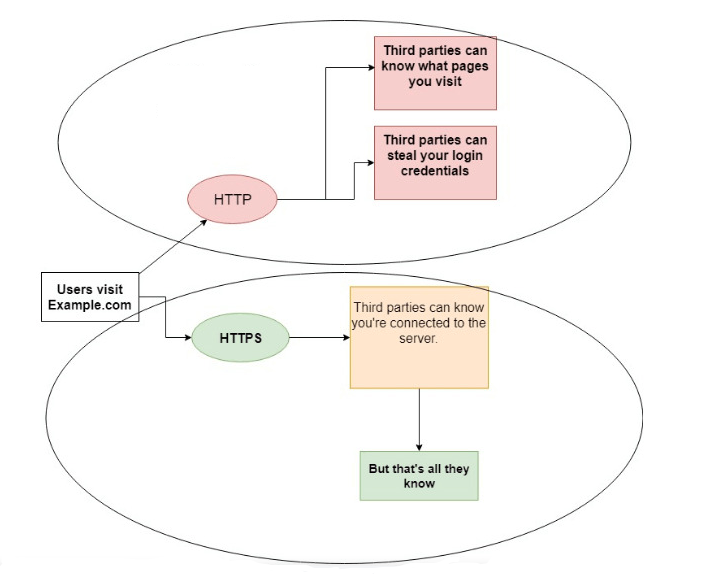How can I make my Website Secure?
Why you should migrate your website to HTTPS.
HTTPS stands for Hypertext Transfer Protocol Secure, and as
the name suggests, provides security to your web traffic/users.
It is especially
important when those users are giving you any kind of personal information as
it provides multiple levels of protection to that information.

All web traffic is transmitted by either HTTP or HTTPS.
These stand for Hypertext Transfer Protocol and Hypertext Transfer Protocol
Secure respectively. As the names suggests, these protocols are very similar,
but have one major difference. HTTPS wraps an encrypted layer around regular
HTTP traffic, providing a much greater level of security.
This encrypted layer is called Transport Layer Security
(TLS, sometimes called SSL).
HTTP websites can be modified by third parties, ISPs or
Hotels/restaurants/other managers of free WIFI. These third parties can add advertisements
or other unwanted content (including malware) to websites that don’t use HTTPS.
While using HTTPS you and your visitors can be certain that no-one has modified
the content of your website, and no one else has access to information being
transmitted between user and web server.
HTTPS, and the synonymous padlock, are signs of
trustworthiness and authenticity.
Chrome is by far the most widely used browser. Compared to
its closest competitor Safari, Chrome accounts for more than four times as much
web traffic. Chrome averages around the 60% mark of total web traffic. https://www.w3counter.com/globalstats.php
Google was the first major company to
mark all HTTP websites as insecure and for the last couple of years and they
have strongly advocated that all HTTP websites migrate to HTTPS. Chrome
will eventually mark all http sites as affirmatively non-secure with a red
triangle and an exclamation mark unless and SSL certificate is supplied. https://blog.chromium.org/2018/05/evolving-chromes-security-indicators.html
An SSL certificate ensures all data passed between browsers and web server are kept private. The certificate can include a Serial number and expiration date, digital signature, name of the holder and a copy of the holder’s public key. In the past SSL certificates have been expensive although today they are more moderately priced. Paid certificates will usually have a more rigorous screening process and may come with insurance.
Some technologies, such as AMP (accelerated mobile pages,
which makes certain pages load almost instantaneously on mobile) require SSL.
AMP-ready pages also receive better rankings on Google. (there are other
requirements that must be satisfied before a site is amp-ready.)
Additionally, HTTPS sites receive an SEO boost from google
in search rankings. https://security.googleblog.com/2014/08/https-as-ranking-signal_6.html
There are many reasons why HTTPS is the preferred protocol
and is used by almost all major websites on the internet. From keeping your
visitor’s information safe, ensuring that your website is not modified by third
parties and a ranking boost from Google, migrating to HTTPS is an easy choice.
Should you choose to migrate to HTTPS iT and Beyond offer this service. Please
contact us if you need
any assistance with your choice.
Use one of the evaluation websites listed below to evaluate the
security of your own website.
